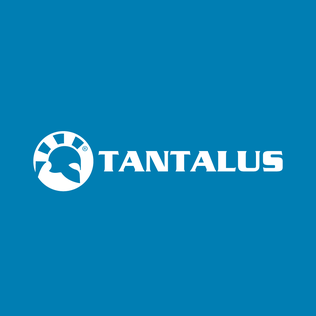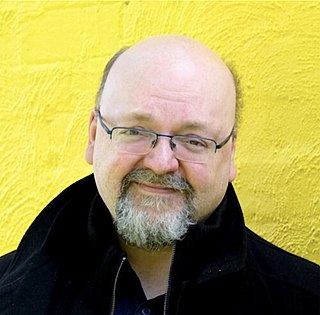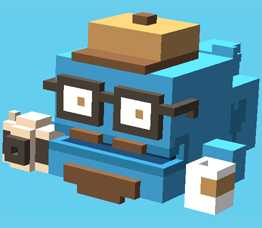The video game industry is the tertiary and quaternary sectors of the entertainment industry that specialize in the development, marketing, distribution, monetization, and consumer feedback of video games. The industry encompasses dozens of job disciplines and thousands of jobs worldwide.

PAX is a series of gaming culture festivals involving tabletop, arcade, and video gaming. PAX is held annually in Seattle, Boston, Philadelphia, and Melbourne. Previously, it was also held in San Antonio.
The Australian Game Developers Conference (AGDC) was an annual conference held from 1999 to 2005 that brought together Australian and overseas game developers, publishers, programmers, artists, production staff, computer graphics companies, audio companies, software tool developers, buyers and suppliers to the game development industry. It was owned by the Academy of Interactive Entertainment (AIE) and was run by Interactive Entertainment Events, a subsidiary of AIE.

Digital Eclipse Entertainment Partners Co. is an American video game developer based in Emeryville, California. Founded by Andrew Ayre in 1992, the company found success developing commercial emulations of arcade games for Game Boy Color. In 2003, the company merged with ImaginEngine and created Backbone Entertainment. A group of Digital Eclipse employees split off from Backbone to form Other Ocean Interactive, which, in 2015, bought and revived the Digital Eclipse brand.

Big Ant Studios Pty Ltd is an Australian video game developer based in Melbourne. Founded in 2001 by chief executive officer Ross Symons, the company specialises in the development of sports games. Big Ant's games include Cricket 22, Rugby League Live 4, AFL Live, AFL 23,Cricket 24 and the upcoming Rugby 25 and TIEBREAK: Official Game of the ATP and WTA.

Tantalus Media is an Australian video game developer based in Melbourne. It was founded in 1994 by programmers Andrew Bailey and Trevor Nuridin. Since its inception, Tantalus has developed almost 100 games and has won multiple game awards. In March 2021, Keywords Studios acquired 85% of Tantalus Media for US$46.8 million.

An indie video game or indie game, short for independent video game, is a video game created by individuals or smaller development teams without the financial and technical support of a large game publisher, in contrast to most "AAA" (triple-A) games. Because of their independence and freedom to develop, indie games often focus on innovation, experimental gameplay, and taking risks not usually afforded in AAA games. Indie games tend to be sold through digital distribution channels rather than at retail due to a lack of publisher support. The term is analogous to independent music or independent film in those respective mediums.
Blitz Games Studios Limited was a British video game developer based in Leamington Spa. Founded in 1990 by the Oliver Twins, who ran the company until its closure in 2013, it is best known for producing games such as The Fairly OddParents, Bratz, SpongeBob SquarePants, The Biggest Loser, and Karaoke Revolution.

Team Bondi Pty. Limited was an Australian video game developer based in Sydney. The company was founded by creative director Brendan McNamara, formerly of Team Soho, in 2003. The studio's first and only title, the action-adventure game L.A. Noire, was announced in July 2005. The development was originally funded and overseen by Sony Computer Entertainment Australia, although all publishing duties later switched hands to Rockstar Games. L.A. Noire was released by Rockstar Games, initially for PlayStation 3 and Xbox 360 in May 2011, to both commercial and critical success. Despite the positive reception, Team Bondi faced several allegations of poor working conditions by several former employees, causing controversy for the studio and leading Rockstar Games to part ways with Team Bondi following L.A. Noire's release. As a result of this, the developer saw itself unable to sign a publishing deal for a new game that was being written by McNamara.

Firemonkeys Studios is an Australian video game developer and publisher of video games, based in Melbourne, Victoria. In May 2011, Electronic Arts announced the acquisition of Firemint for an undisclosed sum, making it an in-house studio for EA Interactive. IronMonkey Studios were also taken under EA Interactive's wing back in 2010. In January 2011, Firemint acquired fellow Australian video game developer Infinite Interactive, best known for the Puzzle Quest series. In July 2012, Firemint announced a post on their blog that Firemint would merge with IronMonkey Studios by EA and merge their names into Firemonkeys. All-new games, including Need for Speed: Most Wanted and Real Racing 3, are released with the new company name.

The video game industry in Australia is worth $4.21 billion annually as of 2022, inclusive of traditional retail and digital sales. A report in 2022 by Austrade estimated that 3,228 Australians worked in the video game industry. In the fiscal year 2016–17, revenue from Australian game developers was approximately $118.5 million, 80 percent of which was from overseas sales.

David Gaider is a Canadian narrative designer and writer. He was the lead writer and creator of the setting for the role-playing video game series Dragon Age.
In New Zealand, 67% of the population plays video games, 46% of video game players are female and the average age of a video game player is 34. New Zealanders spend an average of 88 minutes a day playing video games.
The Indie Fund is an organization created by several independent game developers to help fund budding indie video game development. The Indie Fund was created in early 2010, its purpose aimed "to encourage the next generation of game developers" by providing them funding for development of these games without the terms that would normally be associated with publication agreements.
Animoca Brands Corporation Ltd. is a Hong Kong–based game software company and venture capital company co-founded in 2014 by Yat Siu and David Kim. The company initially focused on developing mobile games, then shifted to blockchain gaming and NFTs in 2018.

Hipster Whale is an Australian independent video game developer and publisher founded on 20 November 2014 by Andy Sum and Matt Hall, shortly before making the game Crossy Road. The company has also created the games Shooty Skies, Pac-Man 256, and Disney Crossy Road.
Video gaming in Finland consists of a video game industry which includes 260 active video game developer studios, roughly a dozen professional players and countless enthusiastic amateurs.
The Interactive Games and Entertainment Association (IGEA) is the industry association for computer and video games in Australia and New Zealand.

The Freeplay Independent Games Festival is Australia's longest-running and largest independent games festival, first established in 2004. The Festival celebrates fringe artists and game makers, and highlights grassroots developers and art games. It gathers artists, designers, programmers, writers, gamers, creators, games critics, games academics and students to celebrate the art form of independent games and the culture around them.

Defiant Development Pty Ltd was an Australian independent video game developer based in Brisbane. It was formed in May 2010 by Morgan Jaffit and Dan Treble, veterans of Pandemic Studios, in the aftermath of the closures of several larger video game studios in the country. Defiant primarily developed mobile games until 2013, when it moved to larger projects with Hand of Fate. The game was released in 2015 following a successful Kickstarter campaign and an early access phase, and it was followed by a sequel, Hand of Fate 2, in 2017. Defiant avoided "crunch" and Jaffit was outspoken about his opposition to the practice, as well as his support for a trade union. In July 2019, the studio was wound down due to what Jaffit called a "risky" business model and failure to adapt to changing market conditions. The studio ceased game development, thereby cancelling The World in My Attic, and planned to further support its existing games.












